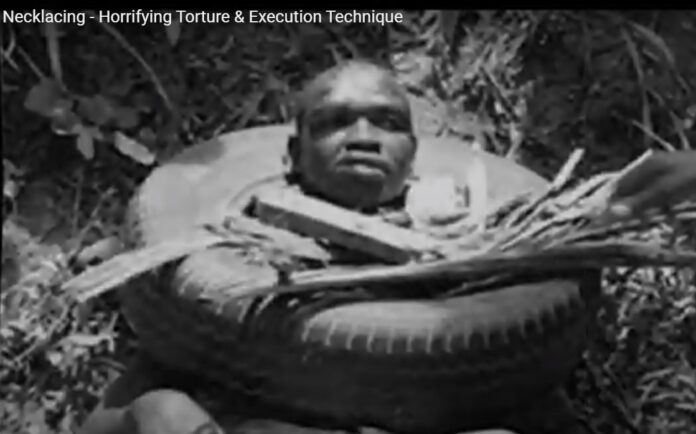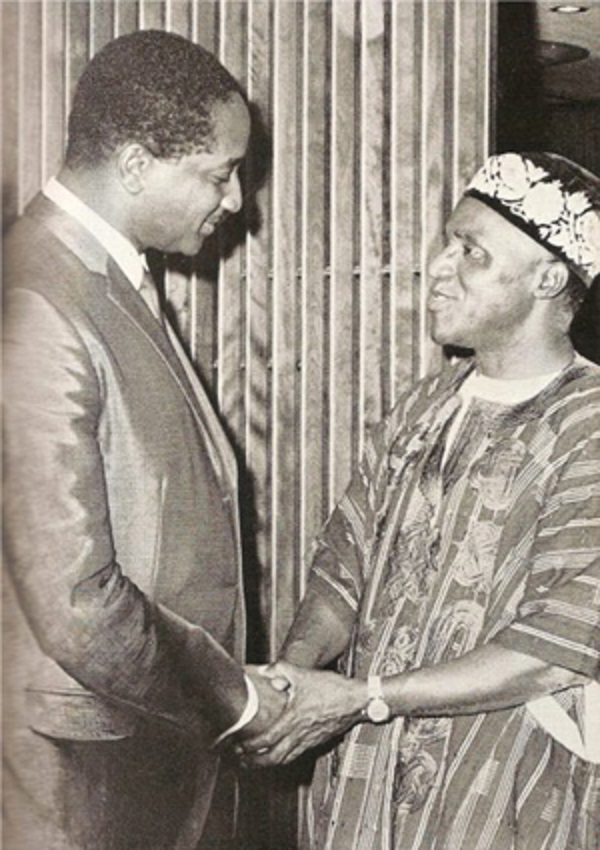As tensions rise in Guyana, some observers are drawing parallels between the current social pressures and historic struggles against oppressive regimes, such as the Apartheid era in South Africa and independence movements in parts of India. The potential for a desperate population to resort to extreme measures in the face of systemic oppression is a serious concern.
In South Africa, during the intense struggle against Apartheid, necklacing emerged as a brutal form of retribution and resistance. This horrific method involved placing a tire filled with gasoline around the victim’s neck and setting it on fire, resulting in an agonizing death. Although the African National Congress (ANC) officially condemned the practice, influential figures like Winnie Mandela viewed it as a necessary evil in the battle for freedom. She famously declared to a fervent crowd, “We have no guns – we have only stones, boxes of matches, and petrol. Together, hand-in-hand, with our boxes of matches and our necklaces, we shall liberate this country.”
Necklacing was often used not against the white architects of Apartheid but against black individuals labeled as traitors to their community. This method of execution was not just a means of punishment but a gruesome symbol of the lengths to which people would go to fight oppression.
As Guyana faces increasing political and social strain, there is growing fear that similar forms of grassroots activism and vigilantism may arise. The abuse of laws to favor one section of the population while ignoring the needs and rights of another could lead to severe instability. The choices made by the Guyanese government since 2020—to pursue a path of division rather than conciliation—may have set the stage for such a crisis.
The comparison to Apartheid-era South Africa is not to be taken lightly. It underscores the potential for societal breakdown when oppressive forces push people to the brink of desperation. The challenge for Guyana now is to avoid descending into chaos and to find a way to address the grievances of its people through peaceful and equitable means. The path forward requires a commitment to justice, equality, and the rule of law for all its citizens, lest history repeat its darkest chapters.
As we look ahead, the question remains: will the People’s Progressive Party (PPP) in Guyana come to regret its decisions over the past four years? Only time will tell. The stakes are high, and the consequences could be severe, echoing the untold deaths and mayhem seen during South Africa’s anti-Apartheid struggle.






